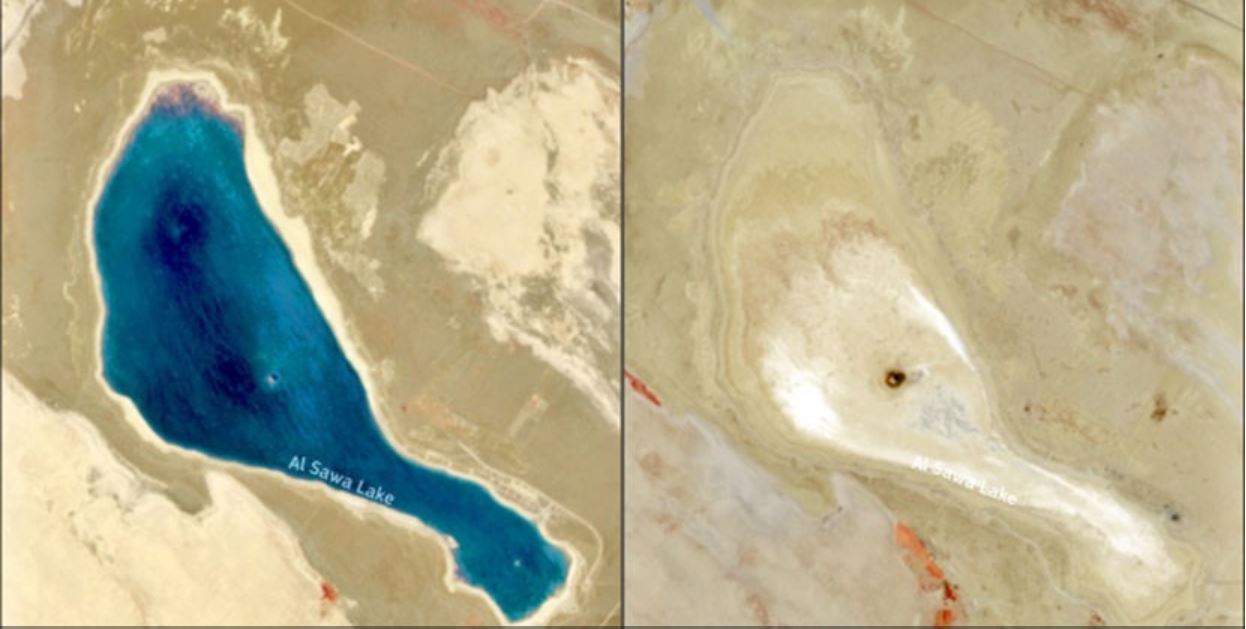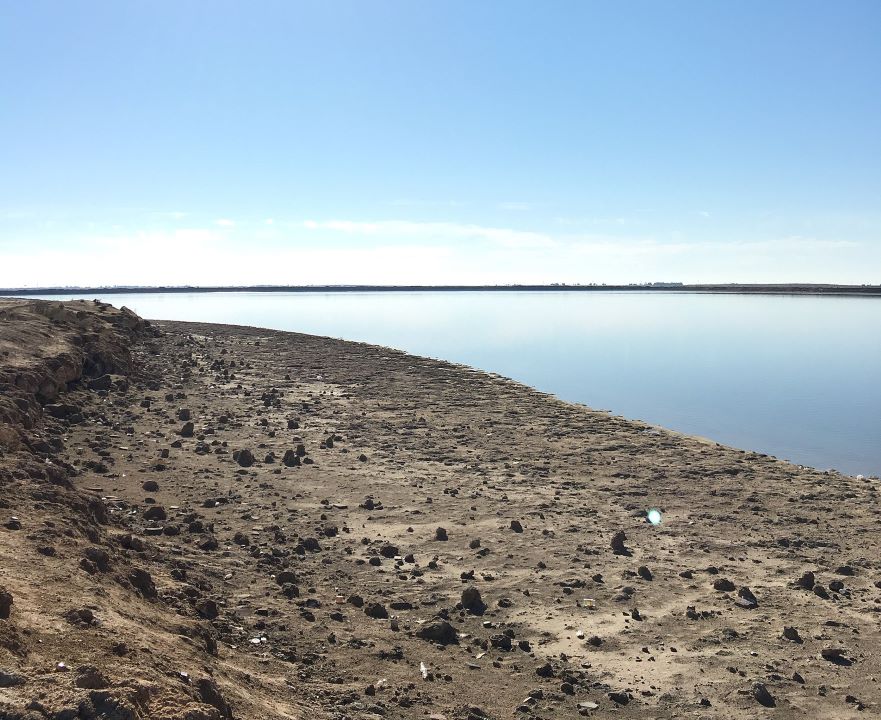This year, people in southern Iraq are without water because Lake Sawa, a vital water source, has dried up for the first time in history. Repeated periods of drought and poor water management by some parties are to blame. It has a significant impact on nature and human society in its surroundings.
Disappearing Lake
Sawa lake in southern Iraq has been a critical water source for the desert region between Baghdad and Basra. However, the water in the lake began to decline ten years ago. As a result, the water area, which has no inflow and is fed from the Euphrates by underground cracks and rainwater, has completely dried up for the first time this year.

The lake lies five meters above sea level and is 4.5 kilometers long and 1.8 kilometers wide. “Sawa is just one of the victims of poor water management in Iraq, multiplied by repeated drought and climate changes. The reason the locals lost a critical water source is the bad decisions of local investors and the government’s lack of interest, “the AP agency wrote.
Will the Water Return?
In 2014, Lake Sawa was included among the wetlands protected by the Ramsar Convention, which was created to protect wetlands of international importance. The only water area near the city of Samawa used to be an attraction for thousands of tourists every year. The authorities believed it would attract more tourists and bring money to development projects.

“The problems of Lake Sawa affect a wide ecosystem. Fish species unfit for the human diet were hunted by migratory birds that settled on the shores. Without fish, birds will find another migration route or perish, “says local conservationist Ali Ubaydi.
At the beginning of June, when farmers stopped harvesting and pumping, the water began to return. However, investors are letting illegal wells be dug because water runs low in the river Euphrates’ vicinity. Wells can cause a permanent lack of water in the lake, experts fear.
Source: smartwatermagazine.com/news/smart-water-magazine/lake-sawa-iraq-disappears-first-time-history
Featured image: Photo by YODA Adaman on Unsplash




